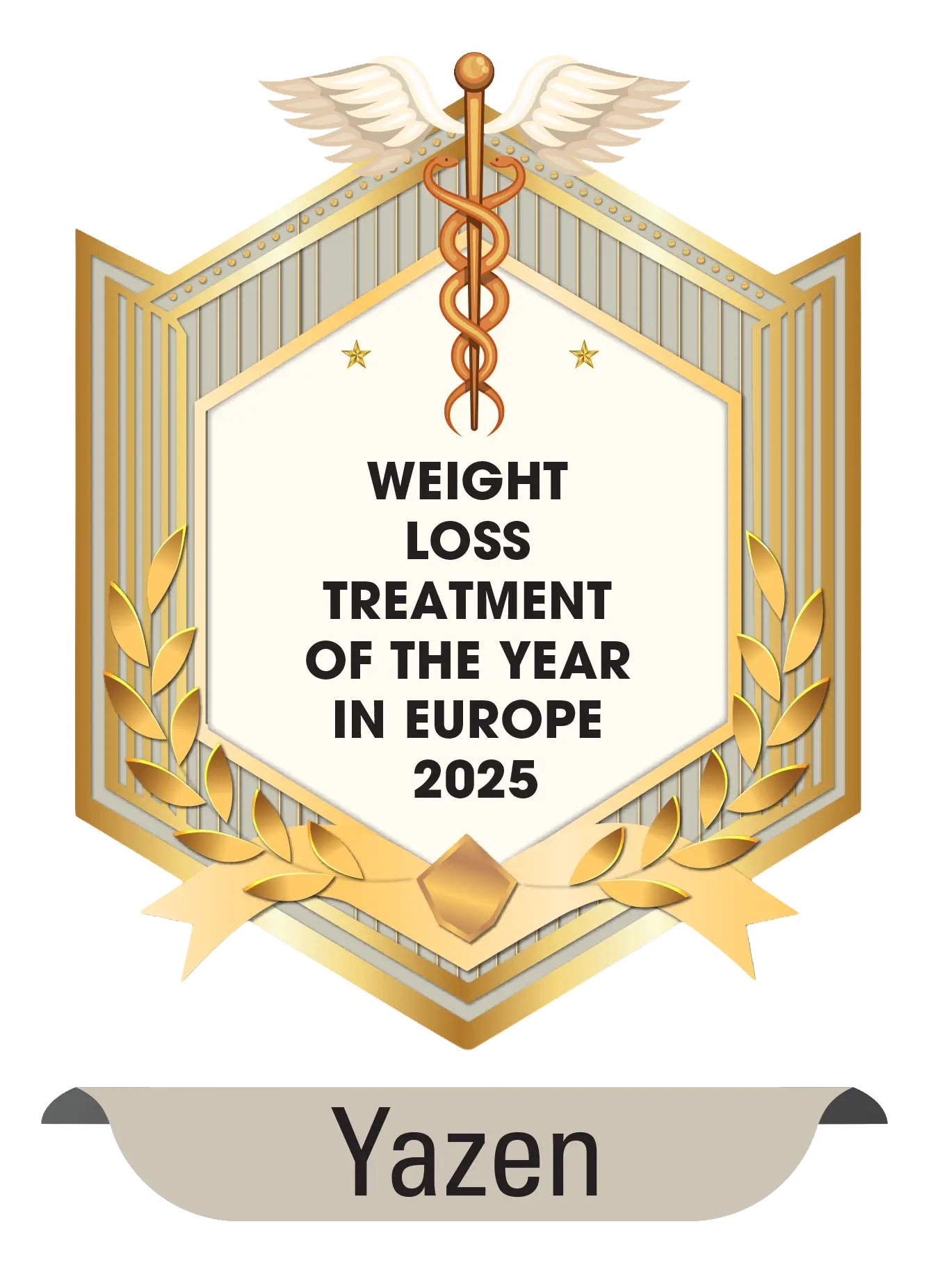Examining the effectiveness of a new digital care model on weight loss for people living with obesity

We are proud to be published at ECO2024. Read the abstract in full below.
Examining the effectiveness of a new digital care model on weight loss for people living with obesity
Martin Henrik Carlsson1, Elin Skoglund2, Lars Brudin3, Magnus Nyhlén2
1Department of Medicine and Optometry, eHealth Institute, Linnaeus University, Kalmar, Sweden
2Yazen Health AB, Lund Sweden
3Department of Medical and Health Sciences, University of Linkoping, Linköping, Sweden
4Department of Clinical Physiology, Region Kalmar County, Kalmar, Sweden
Introduction:
Telemedicine and asynchronous virtual appointments for patients living with chronic medical conditions have been increasingly used to overcome distance barriers and improve access to medical care. The patient perspective is largely positive, with many patients appreciating the convenience and accessibility it offers. One of the groundbreaking aspects of digital healthcare is the ability for doctors to customize and enhance patient care in real time. Through digital platforms, healthcare professionals can monitor patient data, adjust treatment plans, and provide personalized guidance, creating a dynamic and responsive approach to healthcare delivery.
The objective of this real-world retrospective study was to investigate the effectiveness of using a digital platform for weight loss and other related clinical outcomes (up to 6 months) with a group of Swedish patients who are overweight (BMI ≥ 27 kg/m2 with ≥ 1 weight-related co-morbidity) or living with obesity (body mass index ≥ 30 kg/m2).

Methods:
In a total of 2608 patients (613 men and 1999 women), we investigated the effects of remote treatment (pharmacological treatment used in combination with lifestyle support) via a novel Swedish digital therapeutics platform (Yazen Health) for reducing body weight in adults.
Patients received individualised treatment with various GLP-1 receptor agonists (mainly semaglutide and dulaglutide) and lifestyle advice via asynchronous text-based communication within a secure medical app. Weight and blood pressure data were obtained through self-reporting from patients according to specific instructions. To ensure the patients qualified for obesity treatments using medication with GLP-1 analogs, information including medical history, electronic ID, patient photo, and blood tests were gathered. In addition, the model includes authentication at the pharmacy, medication retrieval, and continuous contact between the patient and healthcare providers at Yazen.
Data for the study was retrospectively collected from the electronic health records. The percentage change from baseline body weight was assessed every month for six months, at which point follow-up laboratory testing was done.
Results:
Mean base age for men was 47.7 ± 9.9 years and BMI 34.2 ± 4.9 and for females 46.6 ± 10.5 years and BMI 33.7 ± 5.1. Mean weight loss (percentage) after 1, 2, 3, 4, 5 and 6 months was 4.3; 6.6; 8.1; 10.1; 11.4 and 12.6%. Treatment and weight loss also led to significant improvement in weight-related and cardiometabolic measures such as blood pressure, glycated haemoglobin, fasting plasma glucose, liver enzymes, fasting lipid levels and testosterone (men).
Conclusions:
Several barriers may contribute to obesity treatment failures including the requirement of long-term patient adherence to lifestyle recommendations or drug treatment.
In the current study the use of a telemedicine platform specifically developed for obesity care combined with pharmacological treatment with different GLP-1 analogues and lifestyle intervention resulted in 12.6 % weight loss after 6 months and improved metabolic profile. By embracing the capabilities of digital technology, healthcare providers can offer a level of care that is effective for managing patients living with obesity.

May 11, 2024
November 28, 2025
Start your weight loss journey with Yazen today
Everything you need to do is to create an account and answer some questions about your health
.svg)
.svg)
More articles
New research: over a third of Brits see obesity as a personal choice
A new survey by Yazen Health uncovers widespread misconceptions about obesity, with over one-third of Brits seeing it as a personal choice rather than a chronic disease. These findings highlight the urgent need for greater public education and medically-guided obesity care.




.svg)



.webp)













